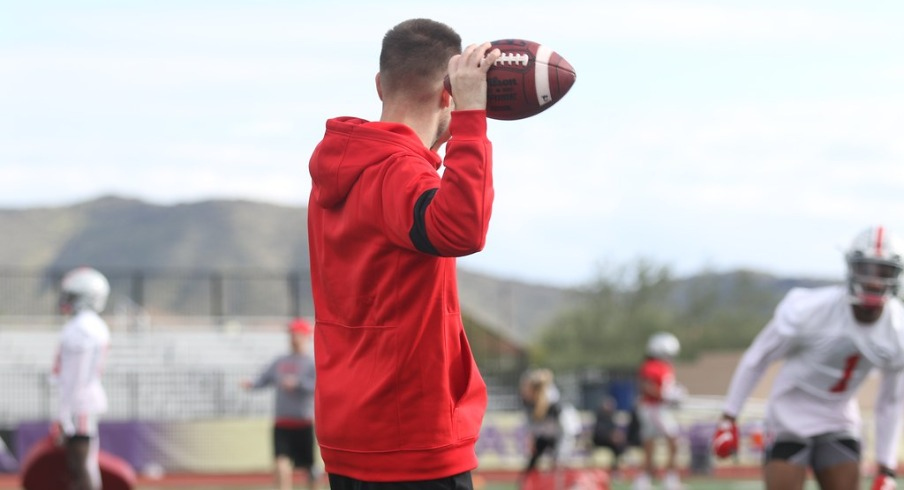College football has become increasingly transactional over the last decade. How much loyalty is expected from departing coaches?

www.elevenwarriors.com
IN AN INCREASINGLY TRANSACTIONAL COLLEGE FOOTBALL WORLD, HOW FAR DOES LOYALTY EXTEND FOR FORMER COACHES?
A lot (a lot a lot) of the ink spilled either in articles like these or in comments sections of articles like these about the effect that NIL, the transfer portal, a cartoon pie left unattended on a window sill, etc. have had on college football has centered mainly on athletes.
How much they potentially stand to make, their ability to extract promises from teams, how difficult it is to maintain a roster now... these issues are what seem to cause the most consternation among college football fans, and I think that sometimes we're letting coaches off the hook a little too easily.
As Antonio Morales from The Athletic points out in his article, the domino effect from Nick Saban's retirement was as wide-ranging as it was immediate. Within a week of Saban announcing that he was going to spend a whole hell of a lot more time boogie boarding with Ms. Terry, Alabama had hired the coach from fellow College Football Playoff finalist Washington, which itself had triggered a mass player exodus from both Tuscaloosa and Seattle, which then caused further chaos as Washington hired University of Arizona head coach Jedd Fisch, who then brought several of his guys to the University of Washington.
Obviously someone was eventually going to get screwed in the inevitable mad scramble that ensued after Saban retired, but in the not-so-distant past I'm not sure that Alabama would've had the ability to have their pick from the best college football coaches in America within days of their head coach position being open. And I'm not sure that their confidence in knowing they'd get the pick of the litter is such a great thing.
This isn't limited to blue-blood programs. UCLA seems to have found some stability under Chip Kelly, winning at least eight games in each of the last three seasons, including a bowl game in 2023. But that might be news to Kelly, who reportedly just interviewed for the Las Vegas Raiders offensive coordinator job. Columbus favorite Jeff Hafley (who was defensive coordinator at OSU for exactly one season) is reportedly leaving his role as the Boston College head coach to become the defensive coordinator for the Green Bay Packers.
AND THEN THERE'S MICHIGAN.
.
.
.
continued
.
.
.
College football players operate on what are essentially non-guaranteed year-to-year contracts that can be rescinded at any time. The vast majority of them have four to five years to maximize whatever earning potential they might have from football, and that's it. Coaches, on the other hand, are making millions of dollars on guaranteed contracts that sometimes extend for a decade, yet we tend to expect (and often get) more loyalty from players to fans and a university than we do from the people that lead them.
It is absolutely true that demands on college football coaches have only gotten more strenuous over time and that the job is much more difficult that ever, but it is equally true that coaches in general have become much more opportunistic at pursuing jobs within college football than they ever have. Blaming the latter on the former seems to miss the reality of how the sport is viewed by coaches in 2024.
The era of a Woody Hayes-type head coach operating on one year contracts at a relatively low salary because of the love of their school is long gone. Maybe it's time to direct some of the ire about NIL and the transfer portal towards coaches who have long been the beneficiaries of the same environment.









